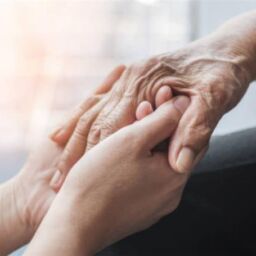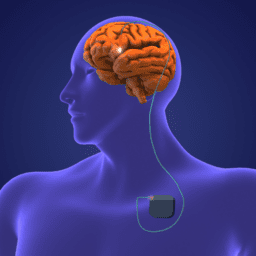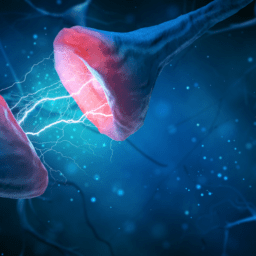Further strong evidence linking environmental toxins to Parkinson’s risk. More biomarker research. Higher rates of physical activity correlate with lower rates of Parkinson’s. More data about the microbiome’s role in Parkinson’s. And many more exciting developments!
PARKINSON’S SCIENCE AND RESEARCH NEWS
- Parts of Camp Lejeune, a military base in North Carolina, have been known to have had a water supply that was contaminated with TCE and other volatile organic compounds in the 1970s and 1980s. In JAMA Neurology, researchers report on a study comparing rates of Parkinson’s for people who served in Camp Lejeune and those who served at Camp Pendelton, where water was not contaminated. Rates of Parkinson’s were 70% higher among those who served at Camp Lejeune. This is further evidence of the correlation of environmental pollution with an increased risk of Parkinson’s. For more on the topic of environmental toxins and Parkinson’s, read this blog post.
- Researchers in Nature Communications report on a large study of pesticides and Parkinson’s. The report explores 288 pesticides. Of these, 53 were associated with Parkinson’s, and ten were directly toxic to dopaminergic neurons. Trifluralin, a pesticide associated with cotton farming, was found to worsen the effect of exposure to other pesticides.
- Analysis of nearly 30 years of medical records for over 20,000 French women shows that higher levels of physical activity are associated with lower rates of Parkinson’s. The incidence of Parkinson’s was 25% lower in the most active women compared to the least active women.
- The endotoxin hypothesis of Parkinson’s is that lipopolysaccharide endotoxins, toxins inside bacteria that are released upon cell death, contribute to the pathology of Parkinson’s. Scientists in Movement Disorders describe this hypothesis and propose possible treatment and trial options related to it.
- Researchers in Helsinki have reported that they have found that Desulfovibrio bacteria can induce the production of abnormal alpha-synuclein in worms. To produce this result, researchers used stool samples from people with Parkinson’s, isolated Desulfovibrio bacteria from the sample, and fed the bacteria to c. elegans worms. After consuming the bacteria, the worms began producing abnormal alpha-synuclein. Some reports about this study suggest that Desulfovibrio may be causing the onset of Parkinson’s.
- Additional worm news–research indicates that feeding C. elegans worms specific bacteria can influence the way the worms produce alpha-synuclein. This represents further evidence that the microbiome may be influential in alpha-synuclein Parkinson’s pathology. One important aspect of this research is that there was a genetic component that facilitated the improvements in alpha-synuclein production.
- The use of a wearable system that senses a person’s intended movements and provides motor cues to alter gait can help improve gait for people with Parkinson’s even after the use of the wearable system is discontinued.
- In a study of 132 people with Parkinson’s and 137 people with MSA, those who experienced orthostatic hypotension were 14% more likely each year to develop dementia. People living with MSA and who experience orthostatic hypotension were 41% more likely each year to develop dementia. The researchers theorize that low oxygen levels experienced during episodes of orthostatic hypotension may be to blame for the neurodegeneration that corresponds to dementia development. View this blog post for tips for navigating orthostatic hypotension.
- In npj, researchers report on an interview-based study involving anxiety experienced by 22 people with Parkinson’s. The authors write that their study’s findings indicate that a “purely biomedical interpretation of anxiety as a brain disease to be targeted with medication would overlook the social, psychological, and behavioral dimensions of illness, and be disjointed from treatment aspirations.” The authors also note that “future treatment trials should test formulation-based therapies that include the patient’s explanatory model for their anxiety. Future research should address both the neurobiological and psychosocial mechanisms of anxiety in PD, to better understand how anxiety relates to physical experiences and how it can best be managed.”
- A large study from Taiwan reports that the use of proton pump inhibitors correlates with an increased risk of developing Parkinson’s within five years.
- The precise definition of Parkinson’s continues to be a source of discussion. In Movement Disorders, a team of researchers report on their efforts to define Parkinson’s and clarify whether there is more than one type of Parkinson’s. Their goals were to define Parkinson’s on clinical grounds and clarify symptom definitions, to delineate genomic sequence-based elements associated with Parkinson’s, to update the neuropathological hallmark criteria of distinct variants that meet the clinical diagnosis of Parkinson’s, and to summarize the essential features of Parkinson’s variants that should guide the development of useful laboratory models.
- Further description of heterogeneity in Parkinson’s presentation appears in the Journal of Neural Transmission.
- A study focusing on the Swedish population found that the median time between diagnosis with Parkinson’s and a person leaving the workforce was 43 months. This was 23 months earlier than a control group that consisted of people without Parkinson’s who shared other similar demographical details to someone from the Parkinson’s cohort. Being female, being diagnosed when older than 50, and having less formal education correlated with earlier than average departure from the workforce
- h2o Therapeutics has partnered with AmerisourceBergen to expand access to their Apple watch app Parky. This app monitors symptoms, including tremor and dyskinesia in real time to facilitate sharing of data between people with Parkinson’s and their care team. The app received marketing clearance from the FDA in November 2022.
- Researchers consulted neurologists about their experiences working with people who live with movement disorders. The interviews that constitute much of the research focused largely on the delivery of a diagnosis to people with movement disorders.
- Bradykinesia is a primary symptom of Parkinson’s, but a study from researchers in the UK and Australia reports that when viewing videos of the same person performing the “finger-tap” test, there is considerable variation in how bradykinesia is rated by movement disorder specialists. This is part of why more clearly quantifiable biomarkers will be helpful in assessing and diagnosing Parkinson’s.
- Movement Disorders has published an overview of the biomarkers. The overview breaks biomarkers into three groups: those that indicate state (whether one has Parkinson’s), rate (how Parkinson’s is progressing), or trait (whether one is likely to develop Parkinson’s because of a prodromal symptom or other factors).
- Researchers investigated a new set of risk factors for Parkinson’s using machine learning and found that cholesterol levels, urate levels, total lymphocyte count, the ratio of lymphocytes to neutrophils, and insulin-like growth factor are all risk factors for Parkinson’s. The team reports that these risk factors may be useful biomarkers. Because the research indicates that these factors influence the risk of developing Parkinson’s differently in males and females, the research team suggests that a panel-based biomarker screening may be most useful.
- A study from Hong Kong indicates that REM sleep disorder is associated with gut microbiome alterations. This suggests that gut microbiome may be useful in predicting the development of REM sleep disorder and Parkinson’s.
- A meta-analysis from Chinese researchers found that Inflammatory Bowel Disease was associated with a moderately increased risk of Parkinson’s. The data analyzed by the researchers included 13.4 million people.
- Autophagy is a way that the body breaks down and recycles cells. A recent review describes the way that genetics and autophagy relate to neurodegenerative disorders, including Parkinson’s.
- A small European study used AI to examine metabolites in the blood and evaluate a person’s risk of developing Parkinson’s years before symptoms emerged.
- Brain published an overview of the general function of alpha-synuclein in the body and the implications of this function for Parkinson’s
- An analysis published in Movement Disorders reports on the validation of the rainbow model of integrated care for Parkinson’s.
- A review published in npj provides a broad overview of the various intersections between gastrointestinal disorders and Parkinson’s.
- In Movement Disorders, researchers report on a possible negative correlation between Type-1 diabetes and Parkinson’s.
- Accumulating evidence suggests that APOE mutations may be associated with accelerated cognitive decline for people with Parkinson’s.
- Research in Brain examines the effect of dopaminergic treatment on reinforcement learning, with a special focus on dopamine agonists and impulse control disorders.
- Evaluation of bacteria from stool samples finds that different bacterial profiles correlate with different Parkinson’s subtypes.
- A small study of leukine, a drug used to prevent infections during chemotherapy, has found leukine to be safe in the five people with Parkinson’s who participated in the trial. The study was not placebo-controlled, but UPDRS scores improved during the study. This treatment affects autophagy, inflammation, and neuroprotective pathways, not dopamine or neurotransmission.
- Supernus plans to resubmit its application for FDA approval for its SPN-380 apomorphine infusion device.
- In Movement Disorders, researchers report on results from a phase 1 trial that involved infusing Cerebral Dopamine Neurotropic Factor (CDNF) into the brains of 17 people with Parkinson’s. There were adverse events in the study, but they were suspected to have been related to the surgery and/or infusion device. After modification to the use and cleaning of the device, the adverse events did not reoccur. The study was designed to assess the safety, not the efficacy of the treatment, but there were signs of biological response in some participants.
- Researchers found that protein PIM2 reduced neuronal cell death in cultured cells and lowered the production of reactive oxygen species in mice.
- On the Brain Ponderings podcast, Dr. Tom Foltynie, who is involved in a phase III trial of exenatide in the UK, talks about the status of research into exenatide as a potential Parkinson’s treatment.
- A new GCase-focused treatment was well-tolerated in a phase 1b clinical trial. GCase is an enzyme that helps with lysosomal function. Lysosomes are sometimes thought of as the digestive system of a cell, and increasing GCase levels is being researched for possible disease-modifying effect.
PARKINSON’S TREATMENTS and THERAPIES
- Gait issues can be difficult to treat, even with advanced therapies like DBS. Researchers from Germany and Canada report on positive effects on gait from bilateral DBS in the pedunculopontine nucleus.
- Researchers in Austria performed additional analysis of their study of rock climbing’s effect on Parkinson’s. They found that rock climbing for 90 minutes/week over 12 weeks improved posture in people with Parkinson’s.
- A meta-analysis of research on exercise’s possible neuroprotective effect finds that exercise may slow disease progression. The study found medium or small effects from exercise in reducing UPDRS scores during OFF periods and in improving Brain Derived Neurotropic Factor levels.
- Researchers in Parkinsonism and Related Disorders report on the safety of medical marijuana use by people with Parkinson’s. Researchers found “no evidence of relative worsening of psychotic, depressive, or cognitive symptoms reported by patients to their treating physicians over time” in a study involving 152 people. They also note that the use of medical marijuana did not have an effect on the levodopa doses participants required for symptom relief. A different study finds, however, that marijuana use has a small, acute negative impact on cognition in people with Parkinson’s.
- Eurofarma and Dentsu Creative have launched an app that allows people with Parkinson’s to engage with Facebook and Instagram by changing their facial expressions. The goal is to provide engaging opportunities to work out facial muscles, and the app may also be helpful for people who struggle to scroll on social media due to tremor, bradykinesia, or dyskinesia.
- The Journal of Neural Transmission published a report on what lies ahead for Parkinson’s therapy.
PARKINSON’S LIVING WELL STORIES
- AARP features a story about Richard Huckabee and racial disparities in Parkinson’s diagnoses. Huckabee faced nearly a decade of doctor’s office visits before he received a Parkinson’s diagnosis, but he has hope: since receiving his diagnosis, Richard has participated in exercise studies and has been able to lower the number of medications he takes.
- Rita Garson graduated from CU Boulder this month. Garson, who is 76 and lives with Parkinson’s, had started taking classes decades ago, but she stopped taking classes when she decided to prioritize time with her growing family. She joins other family members as CU alums, including her grandson who graduated in 2021.
- Metro.co.uk features writing from Emma Lawton, who was diagnosed with Parkinson’s at age 29. Since diagnosis ~ten years ago, Lawton has been busy and kept active, starting a business, modeling, having ground-breaking surgery, saying “yes” as often as possible, and prioritizing adventure.
- The 2 Parkies in a Pod podcast features the story of David Little’s training and progress in running a marathon after 20 years of living with Parkinson’s.
- Kuhan Pushparatnam was diagnosed with Parkinson’s ten years ago when he was 38. He has been an active participant in clinical research and has begun working with Parkinson’s UK on an initiative aimed at increasing participation by underrepresented communities in Parkinson’s research.
- A podcast at Brain and Life explores the influence of adaptive living spaces on quality of life. The podcast relates to the story of Julie and Allen Patterson, whose cottage was also featured in Southern Living.
- The John C. Stevens Pickleball for Parkinson’s tournament hosted by the Abilene Healthy Parkinson’s Community was featured on Fox West Texas.
- An article at science.org discusses Parkinson’s specialist Dr. Tim Greenamyre’s diagnosis of Parkinson’s. Dr. Greenamyre has been involved in Parkinson’s research and treatment for 30 years and continues to work in research and in providing clinical care to people with Parkinson’s.
- The Moorestown Sun features a story about Steve Emerson’s ongoing efforts to live well today and help others do the same.
PARKINSON’S SURVEYS, CLINICAL TRIALS, AND VOLUNTEER OPPORTUNITIES
- Researchers in the UK, in partnership with the Women’s Parkinson’s Project and MyMovesMatter, invite participation in a survey about the experience of menopause for women with Parkinson’s.
- Another study of ambroxol is launching. The DUPARG study is recruiting participants in Groningen, Netherlands.
- A new trial examining the possible neuroprotective effect of exercise has been listed by the University of Nevada.
- Researchers at Oregon Health and Sciences University are conducting a study to test whether a specific, dynamic exercise intervention can help prevent falls in people with Parkinson’s. This study uses safety equipment, including harnesses, to facilitate a regimen that involves turning while walking.
- University of Rochester Center for Health + Technology is undertaking a survey study to assess the ability of the Parkinson’s Disease-Health Index to measure patient-relevant changes in disease burden over the course of two years. Participants will complete surveys five times over two years and must be over 18, speak English, and have a self-reported or clinical diagnosis of Parkinson’s. More information is available here.
- Are you a grandparent living with Parkinson’s while also serving as the primary caregiver for your grandchildren? Do you want to connect with people in similar situations? Let us know by filling out this form.
- Researchers at Columbia University’s Irving Medical Center are seeking participants for a study exploring the role of immune response in Parkinson’s. Participation is open to those with and without Parkinson’s and will involve donating blood, a questionnaire, a cognitive test, and a neurological examination. Click here to express interest in participating.
- John’s Hopkins has announced a trial to evaluate whether levetiracetam can improve symptoms of Parkinson’s psychosis. The trial is not yet recruiting, but the plan is for the trial to begin by September. The trial design features crossover assignment, which means that every participant will receive an active trial drug for part of the trial.
- The LUMA trial continues to recruit participants. This trial aims to assess the safety and efficacy of BIIB122 tablets in slowing the progression of early-stage Parkinson’s. This study has sites in the US, China, France, Germany, the Netherlands, Poland, Spain, and the UK.
- The ACTIVATE trial is recruiting participants for a phase 2 trial of BIA 28-6156 in people with GBA mutations. This 78-week trial has site locations in the US, Canada, and Europe.
- A report in PNAS describes the possible method of action for UCB0599, a treatment currently in a large phase II trial investigating a possible disease-modifying effect.
- In Colorado, a study the Foundation is funding continues to recruit participants. The study will explore low-load resistance training with blood flow restriction in order to help develop exercise interventions to help improve the quality of life for people with advanced Parkinson’s.
- Washington University School of Medicine is sponsoring a study that aims to enroll participants with idiopathic REM sleep behavior disorder, as well as healthy controls, to prepare for a trial of neuroprotective treatments against synucleinopathies.
- Florida State University is sponsoring a study of speech articulation deficits in Parkinson’s.
- A study in South Carolina aims to identify brain biomarkers to predict the risk of cognitive change following DBS surgery.
- A survey for those in Ireland seeks to understand the influence of Parkinson’s symptoms and other factors on the quality of life of people with Parkinson’s.
- Another survey for those in Ireland seeks to understand how people access information about Parkinson’s.
- A trial sponsored by the University of Aberdeen in Scotland is recruiting participants for a study of the effects of constipation and changes in the microbiota in Parkinson’s.
- US-based company Neuronascent announced plans for a phase II trial of their neuro-restorative agent NNI-362. The agent is disease-agnostic, and a previous phase I trial for Alzheimer’s disease produced positive early-stage findings.
- Sinopia Biosciences announced that they have secured funding for a clinical trial to explore the safety and efficacy of their novel agent in treating levodopa-induced dyskinesia.
- Staying Connected through Communication Study – The University of Washington SPEAC Lab invites individuals living with Parkinson’s to answer survey questions about their communication experiences. This is an online survey study that will take about 30-45 minutes. (Paper surveys are also available.) People with Parkinson’s and their family/friends/coworkers will complete SEPARATE surveys, and data are not shared between participants. This study is open to anyone in the U.S. Each participant will be mailed a $25 check upon survey completion. Learn more and enroll here.
- PreActive PD Study – This study, available for both English and Spanish speakers, implements an occupational-therapist-delivered physical activity behavior change coaching intervention in people with early-stage Parkinson’s. The study is based upon a recent single-arm cohort feasibility study (Pre-Activate PD/HD) that evaluated acceptability, implementation, and resulting effect estimates of the Pre-Activate PD intervention in 13 participants. The intervention provides one-on-one coaching sessions from an occupational therapist to individuals newly diagnosed with Parkinson’s. The individualized structured support in the sessions is aimed at facilitating and optimizing exercise uptake as part of an effective self-management program. Learn more and enroll here.
- Gamma Wave Trial – Sponsored by the Massachusetts Institute of Technology (MIT), this trial will investigate the efficacy of a non-invasive method of neuromodulation called Gamma Entrainment Using Sensory Stimulation (GENUS) for managing Parkinson’s motor symptoms. GENUS is administered via light, sound, and tactile stimulation devices and has been tested on cognitively normal individuals and individuals with mild Alzheimer’s, and the device was found to be safe for use and effective for entrainment in both populations. Learn more here.
- Phoenix-Area Residents – Deep Brain Stimulation (DBS) and Exercise Study at Barrow Neurological Institute – This study aims to help researchers learn more about how aerobic exercise affects symptoms of Parkinson’s and the quality of life in people who have DBS. They will also look at brain wave activity using the Medtronic Percept DBS device in order to better understand what changes in the brain might be caused by exercise and how that affects Parkinson’s symptoms. Reach out to Markey if interested.
- Colorado Oral Strengthening Device – The University of Colorado is looking for adults with Parkinson’s to participate in a research study exploring how a novel low-technology device can achieve an increase in tongue strength comparable to standard-of-care exercise using tongue depressors but with the kinematics and simple biofeedback of existing high-cost devices. Research has shown that tongue resistance exercises paired with biofeedback have resulted in improved tongue strength to support chewing, control of food and liquid in the mouth and propulsion of material for a swallow. Learn more and enroll here.
- PD GENEration – The Parkinson’s Foundation has announced a major expansion of its national study to make genetic testing and counseling more available for people with Parkinson’s. The study (NCT04057794) hopes to enroll 15,000 people in all 50 US states, Puerto Rico, and the Dominican Republic. Details are available here. For questions about enrollment, email genetics@parkinson.org. Know someone who speaks Spanish and wants to learn more and maybe participate in the study? Share this link.
- Parkinson’s Progression Markers Initiative – In an expanded study, the Parkinson’s Progression Markers Initiative (PPMI) is currently working to enroll up to 100,000 people with and without Parkinson’s. The study team is especially seeking to enroll people diagnosed with Parkinson’s in the past two years and who are not yet on treatment, as well as people 60 and older who aren’t living with Parkinson’s but have a risk factor for it (such as a close relative with Parkinson’s, a known Parkinson’s-associated mutation, and/or REM sleep behavior disorder). The observational study is also enrolling people with no known connection to Parkinson’s to serve as a control group. Learn more here.
- TOPAZ (Trial of Parkinson’s and Zoledronic Acid) – Caroline Tanner, MD, PhD, is recruiting participants for a new remote clinical trial led by a team of Parkinson’s experts at UCSF in partnership with researchers from across the country. The study aims to help people with Parkinson’s or Parkinsonism maintain their independence by reducing the risk of hip fractures. The study will test if zoledronate, an FDA-approved medication for osteoporosis, can prevent fractures in people with Parkinson’s, whether or not they have osteoporosis. To learn more, visit the study website at TOPAZstudy.org, email TOPAZ@ucsf.edu, or call (415) 317-5748.
- Join Google and LSVT in Project Euphonia – LSVT Global has partnered with Google on an exciting research project called Project Euphonia to help improve automatic speech recognition software for people with speech disorders. These disorders may make using devices like Google Home, The Nest, and other Smart devices, Siri, Alexa, or speech-to-text frustrating. To do this, LSVT Global needs samples of disordered speech to train the system. You are encouraged to enroll if you’ve been diagnosed with Parkinson’s, PSP, MSA, or CBD with mild, moderate, or severe speech disorders. Participation is easy, can be done from your own home, and can earn you a $60 gift card! Learn more here.
- A PD Avengers research group is undertaking a new project called Sparks of Experience, designed to be more systematic about collecting and considering the experiences and ideas that come from the curious minds of people living with Parkinson’s. “In the past, these sometimes quirky ideas inspired by lived experience have turned into significant new directions for research. It could be said we are trying to capture serendipity,” the team says. To learn more and get involved, see the flyer here.
- Game-based Exercise Project – Researchers at the University of Auckland are investigating how games can be used as potential rehabilitation systems. This project aims to develop suitable game-based exercise experiences to help people living with Parkinson’s. If you are 45 or older, living with a chronic condition such as Parkinson’s, and/or are experiencing age-related health conditions, you are invited to participate in a survey that will help the researchers to understand the community’s interests in games and gameplay in the context of exercise and rehabilitation. To learn more and take the 15-minute survey, see the flyer here.
- SPARX3 – A Phase 3 Clinical Trial about Exercise and Parkinson’s – This research team is currently seeking volunteers to participate in a clinical trial about the effects of aerobic exercise on people with Parkinson’s. Learn more and see if you qualify here. For more details, contact Katherine Balfany at SPARX3@ucdenver.edu.
- PAIRing Up – If you are a person with Parkinson’s or a care partner to someone with Parkinson’s, you are invited to participate in an online survey to address neuropsychiatric (cognition, depression, anxiety) concerns in Parkinson’s. The survey aims to learn about the needs and priorities for clinical care, education, support, and research related to neuropsychiatric symptoms. To learn more and participate, click here to download the flyer.
- The University of Oulu and collaborators from Aalborg University, Fraunhofer University, the University of Manchester, the University of Glasgow, the University of Lisbon, and the University of Melbourne, are conducting a survey for people with Parkinson’s and Parkinson’s care partners about self-care. Complete the survey here to share your self-care strategies and techniques. You can also review ideas submitted by others and add them to your own self-care toolbox.
- Home-based Exercise and Cognitive Behavior Therapy – University of Alabama in Huntsville
- Speech and Telemedicine Study – The Purdue Motor Speech Lab
- Parkinson’s and Service Dogs – University of Groningen, Netherlands
- Neurology Study Interest Registry – University of Rochester
- Park Test – University of Rochester
For more of what’s new in Parkinson’s news, check out our full series here.
WANT MORE PRACTICAL ARTICLES LIKE THIS?
You can learn much more about living well with Parkinson’s today through our Every Victory Counts® suite of resources. Each manual is packed with up-to-date information about everything Parkinson’s. Click the link below to order your manual(s).

















